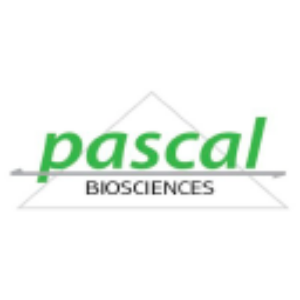Pascal Biosciences Awarded NIH Grant For Leukemia Program
Pascal Biosciences (OTC PINK: PSCBF) has received a $343,750 grant from the US National Cancer Institute to develop its antibody drug for Acute Lymphoblastic Leukemia (ALL), the most common childhood leukemia. This two-year funding will help advance their unique antibody targeting the VpreB protein, crucial for treating ALL. Each year, over 6,000 patients are diagnosed with ALL in Canada and the US. The drug is set to enter clinical trials and may qualify for orphan drug designation, enhancing its market potential.
- Awarded a $343,750 grant from the National Cancer Institute to fund drug development.
- Unique antibody targets VpreB, enhancing treatment specificity and reducing side effects.
- Potential orphan drug designation can provide financial incentives and exclusivity.
- None.
VANCOUVER, BC / ACCESSWIRE / June 8, 2021 / Pascal Biosciences Inc. ("Pascal" or the "Company") (TSXV:PAS)(OTC PINK:PSCBF), has been awarded a grant of US
Pascal is the first to advance an antibody targeting the highly leukemia-specific protein, VpreB, for treating ALL. "This grant validates our scientific efforts and will accelerate development of a new treatment for leukemia patients", stated CEO Patrick Gray. "The exquisite specificity of our antibody will eliminate many of the hazards of current therapies for ALL. This grant will enable Pascal to bring our product into clinical trials."
More than 6000 patients are diagnosed with Acute Lymphoblastic Leukemia (ALL) each year in Canada and the US. About half of ALL patients are adults and half are children, which makes this disease the most common type of childhood leukemia. Pascal's drug will be eligible for orphan drug designation, which can enable financial incentives and a seven year marketing exclusivity. Pascal has filed for patent protection for its ALL treatment. While the number of patients with ALL is relatively small, the market potential for Pascal's drug could be significant. Other cancer products for orphan diseases have proven to be financially successful, selling over
ABOUT ACUTE LYMPHOBLASTIC LEUKEMIA
ALL arises as a consequence of dysregulated proliferation of early-stage B cells. The current treatment for ALL---a chemotherapeutic regimen with four toxic drugs---has not changed in over 40 years. This regimen can be quite effective (
ABOUT PASCAL BIOSCIENCES INC.
Pascal is a biotechnology company targeting innovative therapies for serious diseases, including COVID-19. In addition to a targeted therapy for acute lymphoblastic leukemia, Pascal is developing treatments for cancer and cannabinoid-based therapeutics. Pascal's leading portfolio also comprises a small molecule therapeutic, PAS-403, that is advancing into clinical trials for the treatment of glioblastoma, and PAS-393, an immuno-stimulatory cannabinoid to be used in combination with checkpoint inhibitor therapy which is being developed collaboratively with SoRSE Technology.
To learn more, visit: https://www.pascalbiosciences.com/.
On Behalf of the Board of Directors
Dr. Patrick W. Gray, CEO
Company Contact:
Mark van der Horst, President
Investors:
invest@pascalbiosciences.com
Tel: 206-221-3443
Forward-Looking Statements
DISCLAIMER
Certain statements in this press release contain forward-looking statements within the meaning of the Private Securities Litigation Reform Act of 1995 or forward-looking information under applicable Canadian securities legislation that may not be based on historical fact, including without limitation statements containing the words "believe", "may", "plan", "will", "estimate", "continue", "anticipate", "intend", "expect" and similar expressions. Such forward-looking statements or information involve known and unknown risks, uncertainties and other factors that may cause our actual results, events or developments, or industry results, to be materially different from any future results, events or developments express or implied by such forward-looking statements or information. Such factors include, among others, our stage of development, lack of any product revenues, additional capital requirements, risk associated with the completion of clinical trials and obtaining regulatory approval to market our products, the ability to protect our intellectual property, dependence on collaborative partners and the prospects for negotiating additional corporate collaborations or licensing arrangements and their timing. Specifically, certain risks and uncertainties that could cause such actual events or results expressed or implied by such forward-looking statements and information to differ materially from any future events or results expressed or implied by such statements and information include, but are not limited to, the risks and uncertainties that: products that we develop may not succeed in preclinical or clinical trials, or future products in our targeted corporate objectives; our future operating results are uncertain and likely to fluctuate; we may not be able to raise additional capital; we may not be successful in establishing additional corporate collaborations or licensing arrangements; we may not be able to establish marketing and the costs of launching our products may be greater than anticipated; we have no experience in commercial manufacturing; we may face unknown risks related to intellectual property matters; we face increased competition from pharmaceutical and biotechnology companies; and other factors as described in detail in our filings with the Canadian securities regulatory authorities at www.sedar.com. Given these risks and uncertainties, you are cautioned not to place undue reliance on such forward-looking statements and information, which are qualified in their entirety by this cautionary statement. All forward-looking statements and information made herein are based on our current expectations and we undertake no obligation to revise or update such forward- looking statements and information to reflect subsequent events or circumstances, except as required by law.
"Neither the TSX Venture Exchange nor its Regulation Services Provider (as that term is defined in the policies of the TSX Venture Exchange) accepts responsibility for the adequacy or accuracy of this release"
SOURCE: Pascal Biosciences Inc.
View source version on accesswire.com:
https://www.accesswire.com/650833/Pascal-Biosciences-Awarded-NIH-Grant-For-Leukemia-Program
FAQ
What is the significance of the NIH grant awarded to Pascal Biosciences (PSCBF)?
How does Pascal Biosciences' drug differ from current ALL treatments?
What is the market potential for Pascal Biosciences' ALL drug?
When will Pascal's drug enter clinical trials?







